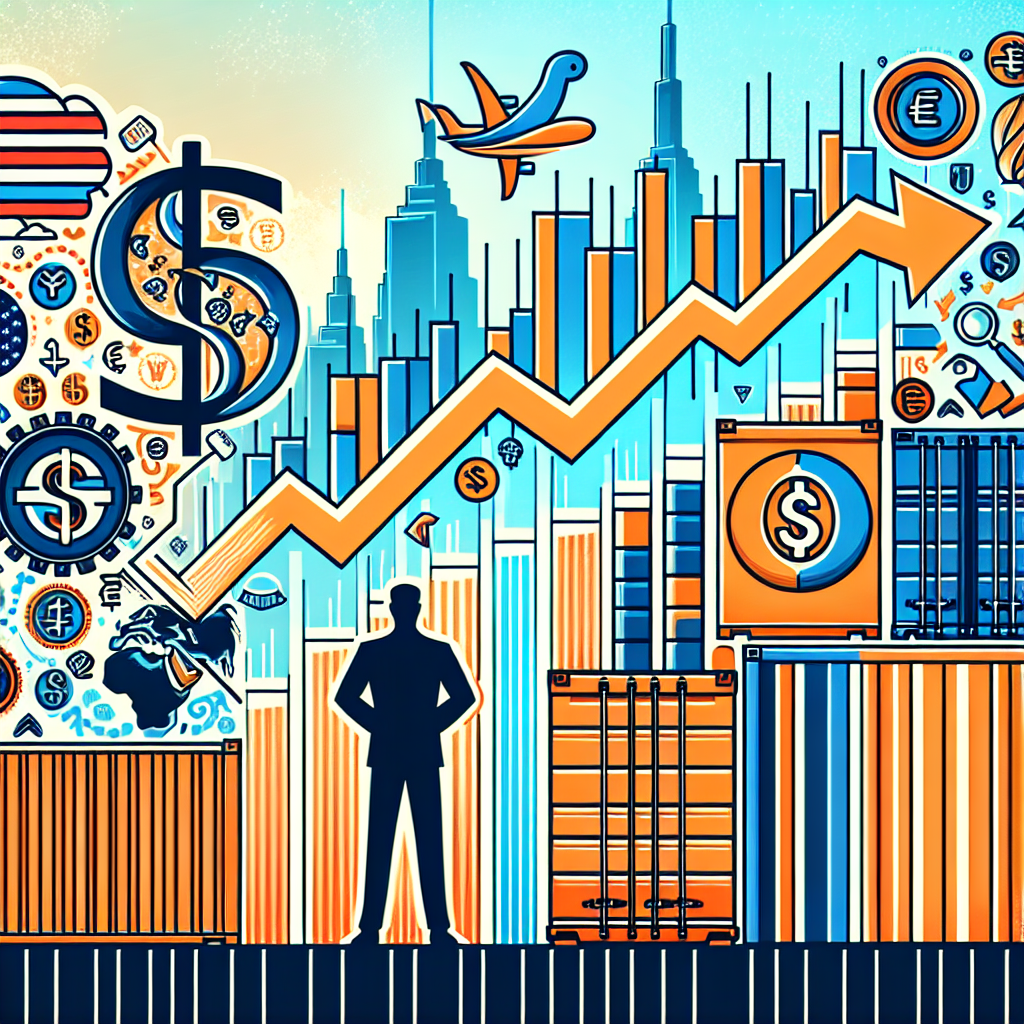“`html
UBS Forecasts Economic Growth Defying Trump Tariffs Impact
In an unexpected turn of events, UBS, one of the world’s leading financial services providers, has issued a report forecasting economic growth despite the ongoing trade war and tariffs imposed during the Trump administration. These predictions offer a glimmer of hope to investors worried about the potential negative impacts of trade tariffs. Let’s dive into the details and implications of this forecast.
The Resilient Global Economy
Despite the challenging landscape painted by trade tensions, UBS analysts have a rather optimistic outlook on economic growth. They predict that the global economy is showing resilience in the face of adversity. According to their report, several factors are contributing to this robust prediction, including:
- Diversification of supply chains: While tariffs may have initially disrupted certain supply chains, businesses have since taken measures to diversify their suppliers, finding alternate markets to reduce dependency on any single source.
- Increased domestic production: Some industries have responded to tariffs by ramping up domestic production, ultimately safeguarding themselves from international trade volatility.
- Stimulus measures: Economic stimulus packages have played a significant role in sustaining growth. Governments around the world have introduced measures to mitigate the adverse effects of tariffs and stimulate growth.
Impact on Key Sectors
The UBS forecast suggests that while some sectors may face challenges, others are poised for growth. Here is how different sectors might respond to the current economic climate:
- Technology: The tech sector continues to thrive, with digital transformation accelerating across industries. Tariffs have had a minimal impact owing to the ever-growing demand for tech solutions.
- Manufacturing: Although manufacturing faced initial setbacks, the shift toward domestic production and rising demand for certain goods is expected to bolster this sector.
- Consumer goods: Consumer confidence remains high, and spending on essential goods continues unfazed. Businesses in the consumer sector are adapting by adjusting their pricing strategies to cope with tariffs.
Opportunities for Investors
For investors, the UBS forecast serves as an encouraging signal. The expectation of continued economic growth suggests there might be potential investment opportunities. Here are some strategies investors might consider:
- Diversification: Seeking investments in sectors less affected by tariffs or those showing resilience could provide a safeguard against potential trade-related volatility.
- Long-term investments: Focusing on long-term investments in industries like technology and healthcare can offer stability amid economic fluctuations.
- Regional investments: Considering markets outside the heavily tariff-impacted regions might also yield favorable returns.
The Role of Monetary Policy
Monetary policy will inevitably play a crucial role in sustaining economic momentum. Central banks worldwide are expected to carefully monitor the developments and react appropriately to maintain financial stability. An accommodative monetary policy could further stimulate growth and alleviate the negative impacts of tariffs.
Criticism and Challenges
While UBS’s forecast is optimistic, not all analysts share this view. Critics argue that the full impact of tariffs could take longer to manifest. Here are some of the key criticisms and challenges mentioned:
- Inflationary pressures: Tariffs could lead to increased production costs, which may translate into higher consumer prices, impacting spending power.
- Potential trade conflicts: The ongoing trade tensions might escalate into broader conflicts, potentially affecting global economic stability.
- Supply chain vulnerabilities: Despite diversification efforts, disruptions in global supply chains could still impact production and growth.
Conclusion
In conclusion, UBS’s forecast brings a positive perspective to the economic debate surrounding Trump tariffs. Despite the hurdles presented by international trade tensions, the economic outlook remains hopeful as businesses adapt, innovation continues, and policies support growth. However, investors and policymakers should remain vigilant, preparing for potential market adjustments as the full impact of tariffs unfolds.
The focus now lies on strategic planning and adaptability in both economic policies and investment approaches to navigate this complex landscape successfully. As the world watches these predictions unfold, only time will tell how the global economy will truly respond to the challenges ahead.
“`




